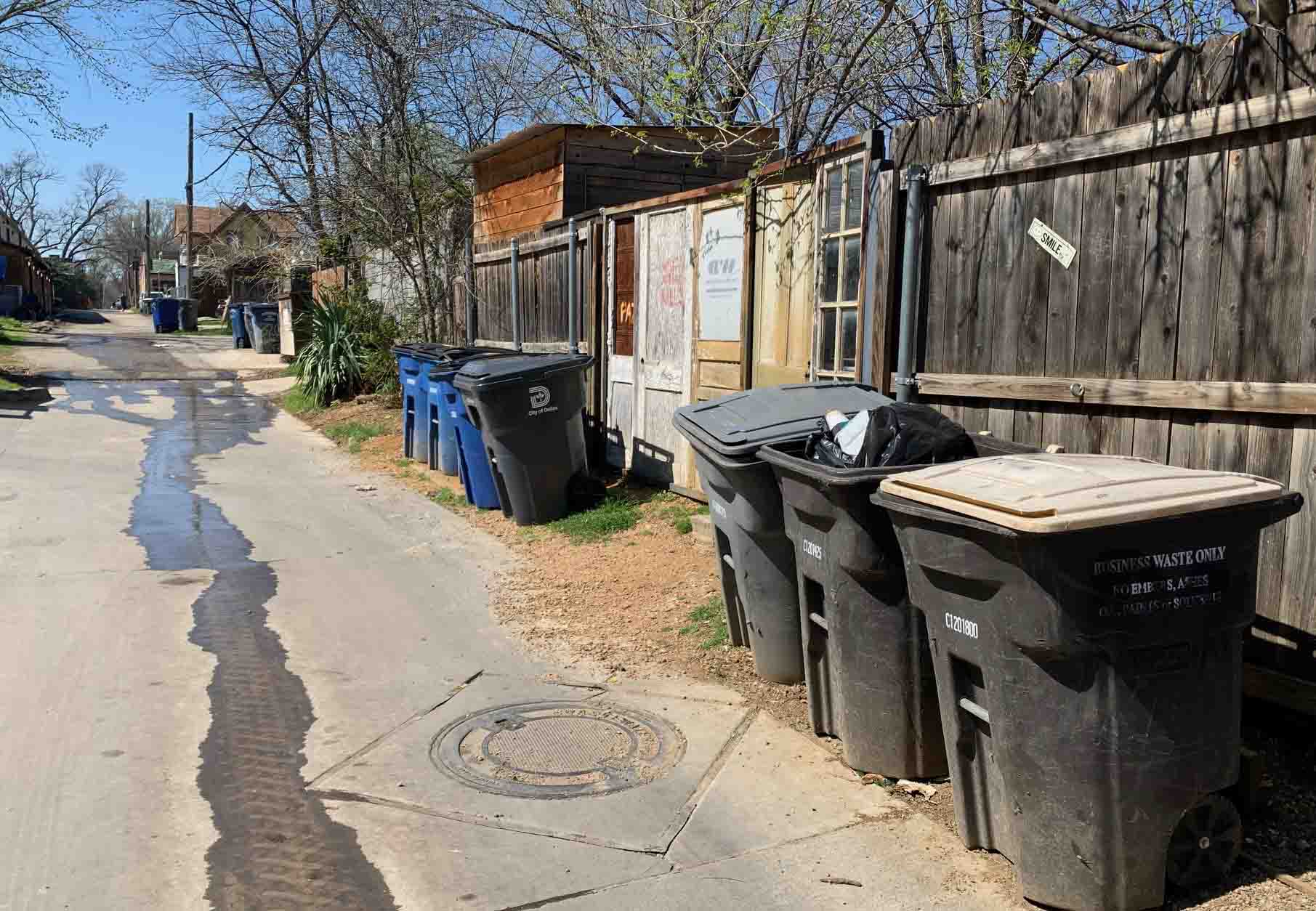Once a week, homeowners in Dallas return to their yards to make the same trek with their rolling trash and recycle bins. Some push the bins to the back alley for pickup, some roll them out front to the curb. If city sanitation officials have their way, all trash will soon be collected at the street.
Clifton Gillespie, director of the city’s sanitation department, made the proposal to Dallas’ Quality of Life, Arts and Culture Committee last week. Alley conditions vary widely across the city, he said, making alley collection inefficient and cost ineffective.
Alleys in Dallas’ southern sector are often unpaved, overgrown or have pavement so damaged as to be all-but-unnavigable. Most homes there rely on curbside pickup by necessity. On the north side of town, the majority of homes use alley pickup.
Alley pickup requires smaller trucks, which often cause damage as they navigate between fences and under utility lines. The specialized, 9-foot-wide, back-loading vehicles require more employees and cost nearly $7 million more per year to operate. Hundreds of property damage complaints are received each year from homeowners along the route, Council member Gay Donnell Willis shared at the meeting.
Street pickup has its issues all its own.
Cars parked along residential streets make pickup more difficult, and bins lifted higher into the air are more prone to leave litter blowing along the street. Toppled empty bins in the roadway are a blinking green invitation for burglars, indicating residents are away.
“I have had 8-10 emails opposing the proposal to remove alley collection,” Council member Chad West shared with The Advocate Friday. “I will form my opinion after I have the opportunity to see the briefing myself and talk with neighbors and staff about the proposal. Staff has only briefed a committee at this point – I expect for them to brief the full council before proposing any plan of action and timeline.”
“With any new policy proposal,” West continued, “it’s important to consider the goals of the city and balance them with the impact on the communities we represent. Here, the intent for better efficiency and lower cost is a good one, but we need to carefully analyze how the policy will impact our neighborhoods – especially our seniors.”
Gillispie plans to brief the full city council and solicit resident input before possible changes are made.
“We understand the significance of alley collection services to many Dallas residents and the strong sentiment surrounding the issue,” he wrote in an email to The Advocate. “However, we must also consider the complexities involved in balancing these valued services with the practical realities of our operations.”
Emma Ruby contributed to this story.






